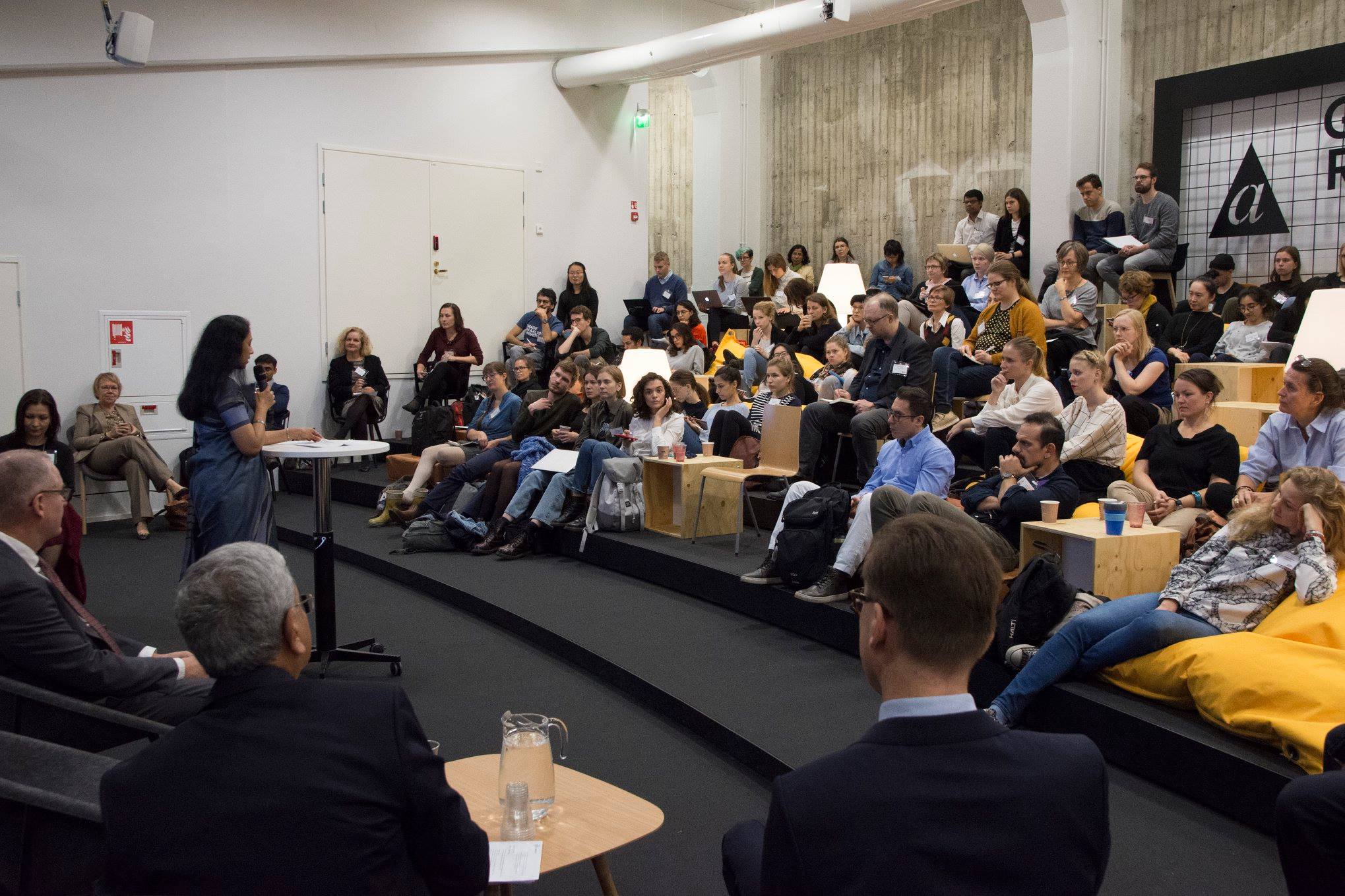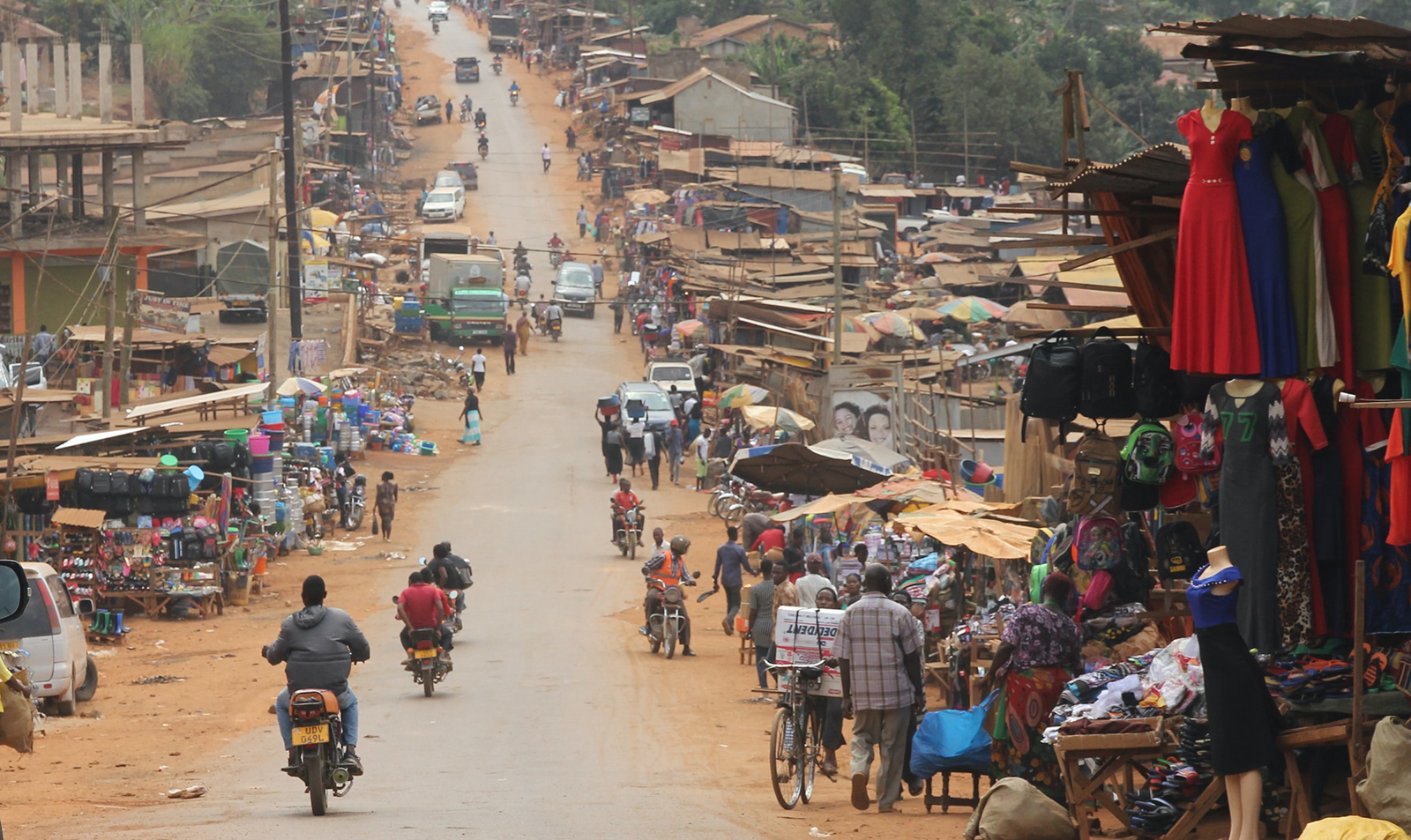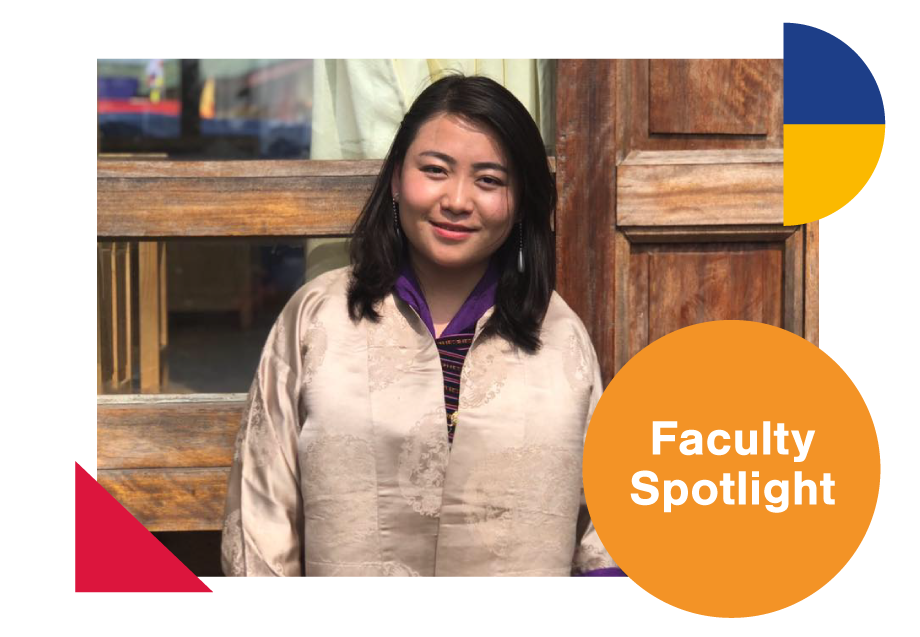What can be done to make future megacities sustainable?
How to guarantee resources like access to water for tens of millions urban dwellers?
Asian Studies Days tackled sustainable development challenges of urbanization in Asia on October 17 at Aalto University.
People living in cities is projected to rise from 3.5 billion people to 5 billion by 2030. India alone will have seven megacities with populations over 10 million and 80 million people live in slums across urban India.
“The world’s cities account for up to 80% of energy consumption as well as 75% of global waste and emissions” pointed out Professor K.N. Satyanarayna, Director of Indian Institute of Technology (IIT) Tirupathi, in his keynote speech.
“Due to the high concentration of people, infrastructure, housing, and economic activities, cities are particularly vulnerable to climate change and natural disasters”, he continued.
The Indian government has recently introduced several initiatives in achieving sustainability in cities. However, often these initiatives are top-down approaches and challenging to implement and sustain.
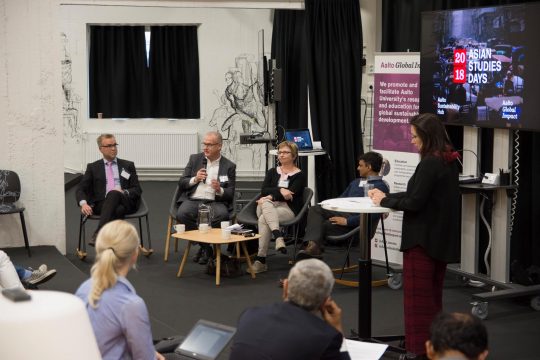
During the panel discussion, Professor
Sirpa Tenhunen, from University of Helsinki (Social and Cultural Anthropology, Faculty of Social Sciences) emphasized the dialogue between the people in the community level and the government. In India, there is an influx of rural population to cities and nearly 60% of the farmers are affected by climate change but their voices are often not heard in the public discussions.
In her research on “Urban development and environmental displacement in South Asia” Tenhunen studies on how these people themselves perceive climate change and how they struggle for their right to have sustainable livelihoods. As climate change is a reality, her research is about the change, facing the problems and solving them.
“The social and cultural aspects of sustainability are often neglected”, Tenhunen said.
Rapid urbanization is exerting pressure on freshwater supplies and sewage
Professor Olli Varis from Aalto School of Engineering (Water resources management, Department of Built Environment) spoke about how to ensure water security in urban settlements. For instance, water scarcity affects more than 40 % of the human population globally and 2.5 billion people are lacking access to basic sanitation, such as toilets and latrines.
“There has to be a very fast growth of political will, funding, and public awareness in order to develop public water infrastructure fast enough”, Varis said.
“It is often easier to get government funding for the water system, but not for the wastewater treatment in India and many other Asian countries.”
Poor water quality can negatively impact people’s health, livelihood choices and also food security. Varis pointed out, that when tackling the sustainability challenges, it is important to combine engineering and social sciences.
“Students and researchers need to communicate enough with people doing practical work in the field of sustainable development and from different disciplines in order to solve problems of water in the built environment as well as in natural environments.”
Future collaboration on sustainability and urban development with India
The event brought together people from enterprises, public administration and civil society in addition to Aalto students and researchers. During the panel discussions, the experts from different fields identified future trends for cross-sectoral research collaboration and discussed business opportunities with India.
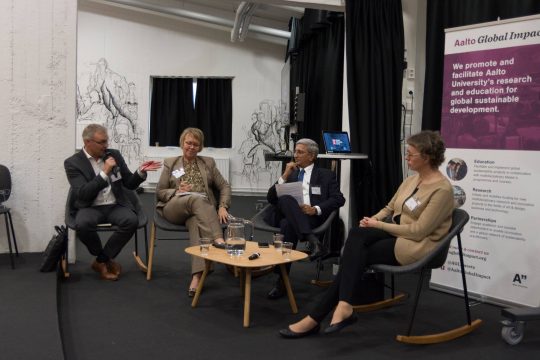 “For many Finnish companies, major obstacles have proven to be an unawareness of different communication and management styles in India, and a low level of cultural sensitivity”
“For many Finnish companies, major obstacles have proven to be an unawareness of different communication and management styles in India, and a low level of cultural sensitivity”, argued
Silva Paananen, Managing Director and Partner of Kasvu Consulting Pvt Ltd, who provides business development services for Finnish enterprises in India.
“India offers a lot of business opportunities, but you need to have the right partners, access to the right people and decision-makers”, Paananen added.
There are great opportunities for collaboration on research and educational programs related to sustainability and urban development. In his speech, Professor Ossi Naukkarinen, Aalto University’s Vice President for Research, mentioned circular economy, metal and wood-based fiber cycles, circular business models and governance of circular systems, new energy solutions and regenerative sustainability approaches as some of the potential research fields.
“Collaboration with Indian Institutes of Technology is set as a high priority at Finland’s national and at the Aalto University level”, Professor Naukkarinen said.
Asian Studies Days were organized by Aalto Global Impact and Aalto Sustainability Hub in collaboration with the Finnish University Network on Asian Studies.
FinCEAL Plus project provided financial support. There were around 140 participants attending the event.
Text: Henna Faarinen
Photos: Roope Kiviranta
Read more
Aalto Global Impact (AGI)
@AGI_tweets
AGI Facebook
Aalto Sustainability Hub (ASH)
ASH website
ASH Facebook
University Network for Asian Studies
Website
Facebook
Tags:
asian studies,
sustainability,
urbanization,
water
This post was written by AGI

